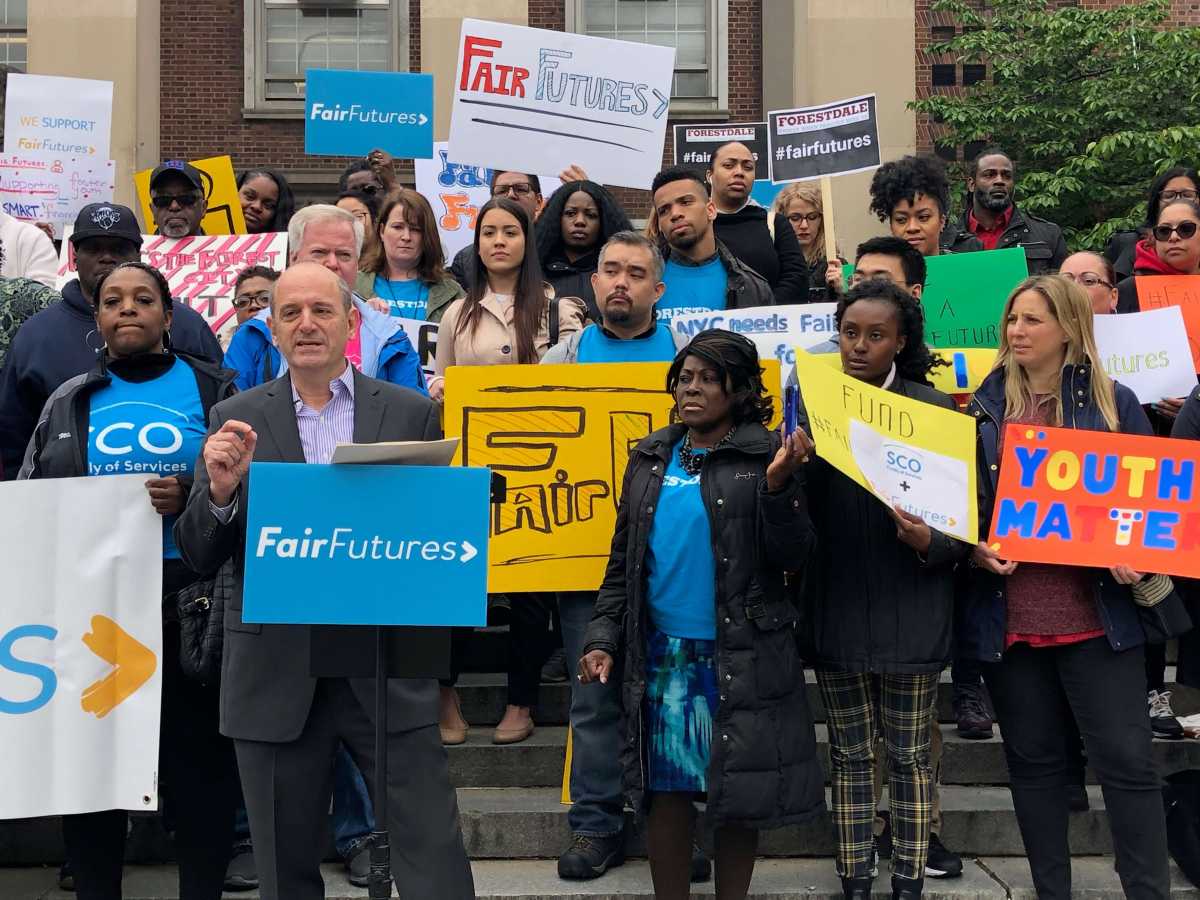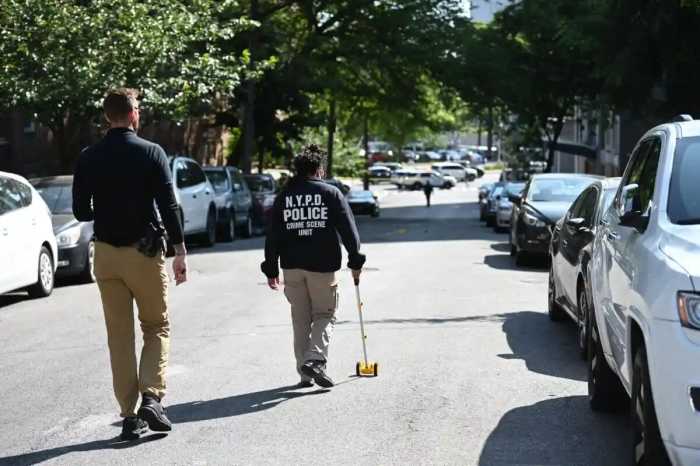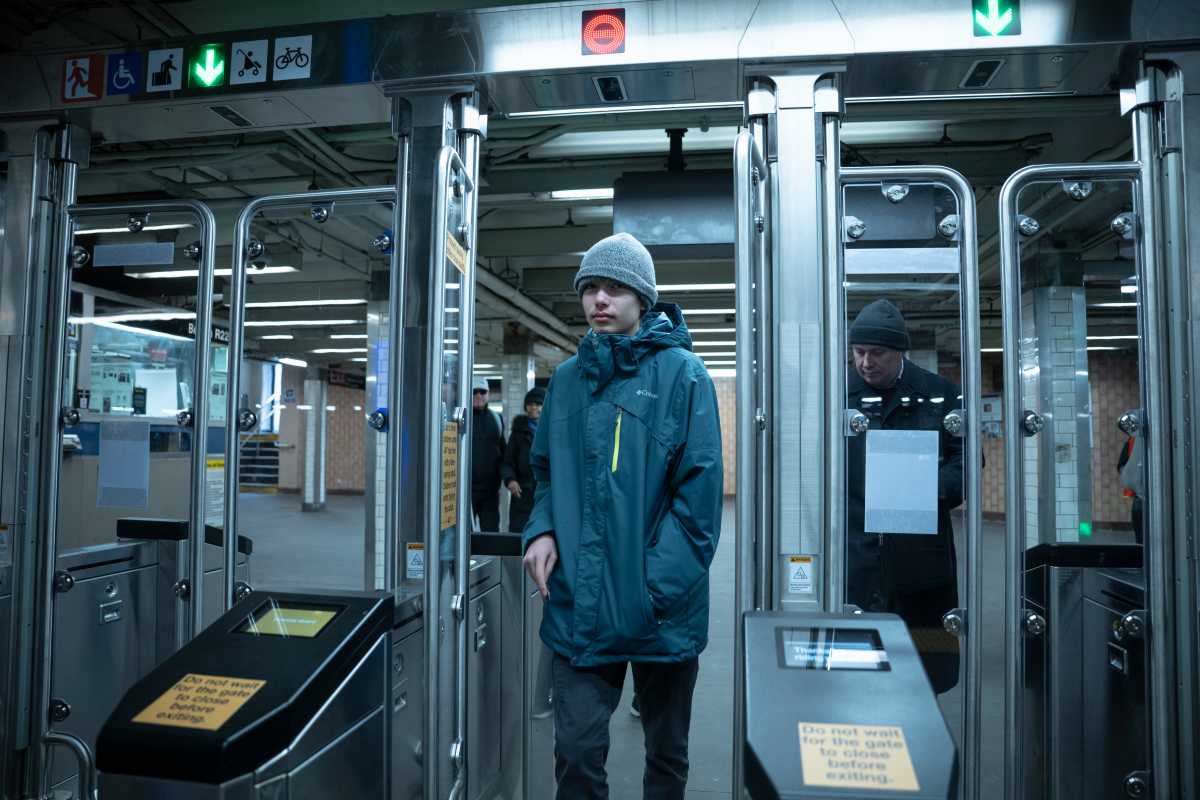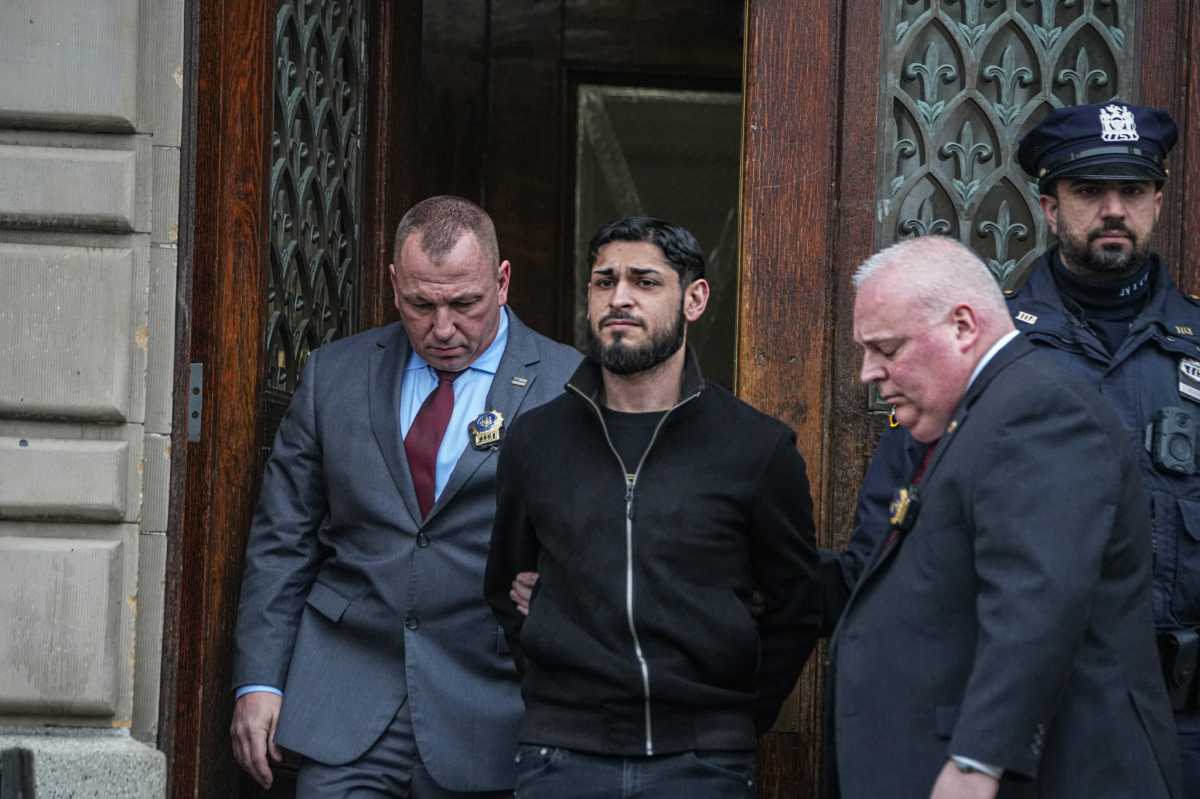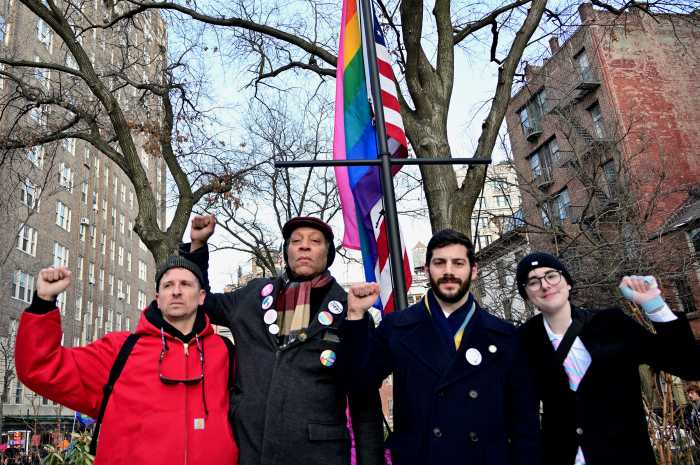During the final weeks of budget negotiations between the mayor and City Council, young people in foster care, advocates and child welfare agencies rallied on the steps of Queens Borough Hall on Tuesday to demand full funding for tools that will provide equal opportunity for young people in foster care.
Child welfare agencies such as Forestdale Inc., New York Foundling and SCO Family of Services joined forces as part of the Fair Futures Campaign urging Mayor Bill de Blasio and City Council to invest in long-term coaching and robust academic, career development and independent living support for foster youth from middle school through early adulthood.
Jamaica/St.Albans, the Rockaways and Queens Village are among New York City neighborhoods with the most foster care placements, with a majority of foster youth in Queens coming from Black and Latino communities, according to the Fair Futures Campaign.
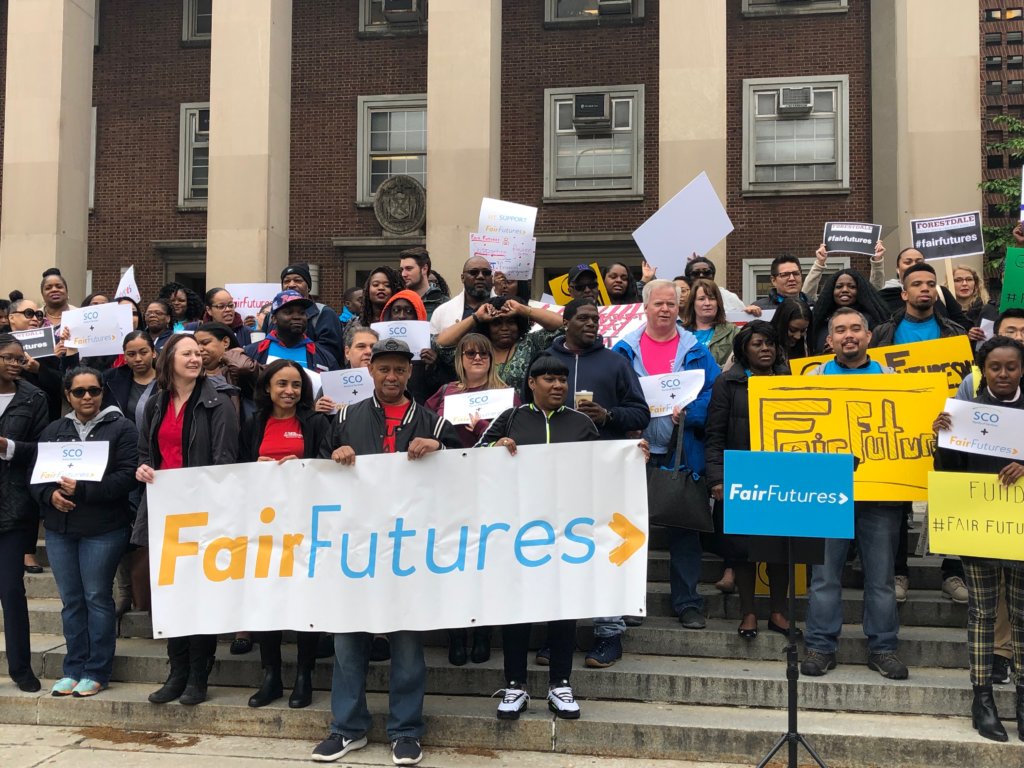
“We have accepted far too long that it is okay, even normal, for youth in foster care not to graduate from high school, rarely go to college or have access to the necessary social supports all young people require as they transition to adulthood,” said Bill Baccaglini, president and CEO of The New York Foundling. “Entrusted to the city’s care through no fault of their own, we attribute any poor outcomes to their individual capacity rather than inadequacies in the system. Through focused and academic social supports, we can provide young people in foster care with the opportunity to lead full, productive and rewarding lives.”
Over 4,000 middle and high school-aged children and youth are entrusted to the care of New York City through the foster care system, and approximately 600 to 700 children age out each year at age 21 without any adult to turn to for guidance, according to a 2017 ACS report on Youth in Foster Care. Foster youth who age out are disproportionately likely to become homeless, involved in the justice system, or face unexpected pregnancy.
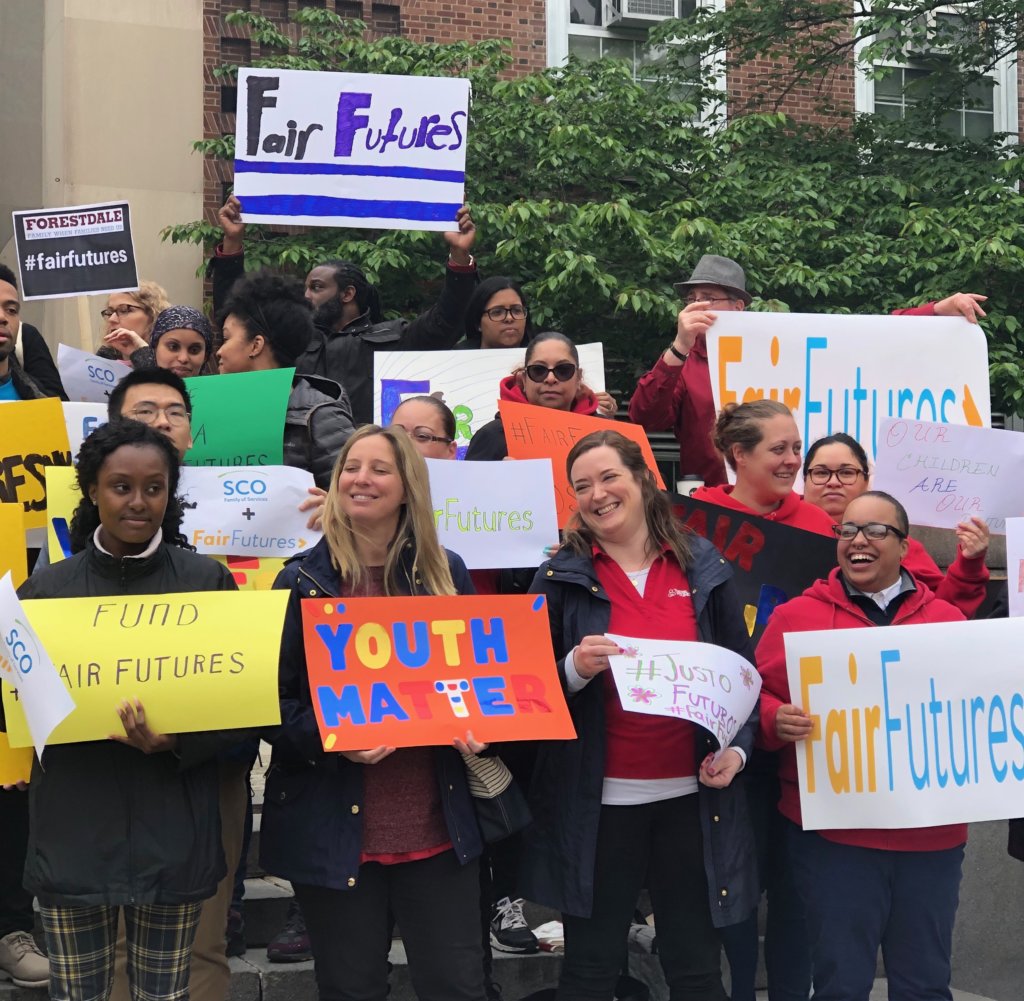
“Only 12 percent will enroll in college or vocational programs. That doesn’t sound right, does it?” said said Keith Little, executive director of SCO Family of Services. “Absolutely not. Only 22 percent will have a high school degree compared to 67 percent nationally. There’s a sense of urgency in terms of moving this initiative forward and we need our city and state legislators to make this a priority.”
Foster youth with access to a long-term coaching program will end up on a successful trajectory, according to the Fair Futures Campaign. At two New York foster care agencies that have implemented comprehensive coaching programs, nearly 90 percent of participants who are 21 years old have a high school diploma or equivalency.
Advocates are pushing to ensure every foster youth in New York City has access to those resources, changing outcomes for foster youth and saving taxpayer dollars through reduced public costs for homelessness, incarceration and social services.
Jahlika Hamilton, of Forestdale Inc. and a Fair Futures youth advisory board member, shared her testimony of support received from the coalition.
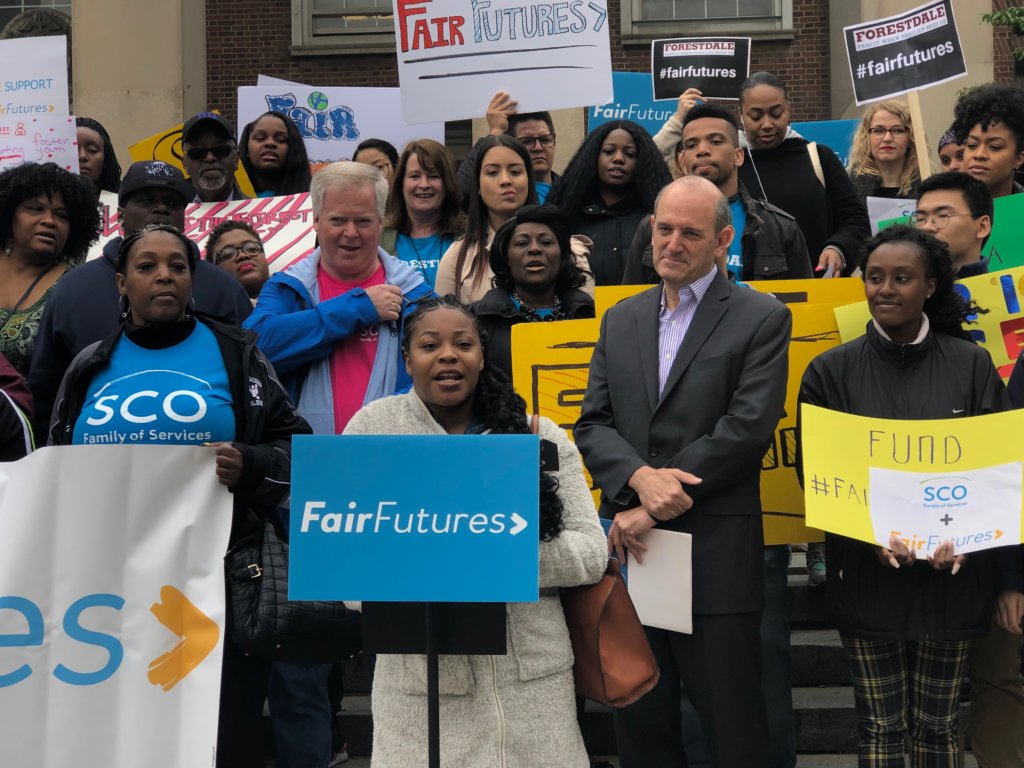
“I never imagined getting so far in life as I have if someone didn’t realize the potential in me,” said Hamilton. “If it wasn’t for the fact that there was somebody there for me when I aged out of care, I don’t know if I would be here right now. Fair Futures is not just another program; it’s like a family.”
Marcus Diego, a foster care student studying journalism at LaGuardia Community College, is looking forward to obtaining a bachelor’s degree in journalism at Hunter College, Queens College or SUNY Buffalo.
“Growing up in foster care for a very long time, all I’ve heard is that I wouldn’t be where I’m at today. I didn’t really have the support that I needed,” said Diego, who is a part of the Dormitory Project at Queens College, which provides a college dormitory experience that is tailored to the specific needs of youth in foster care and includes academic and social support. “Foster care students need to be heard on a daily basis, no matter what age — junior high school, elementary, high school — it’s up to us to make sure we all have a fair future. Nobody is better than the other person.”
The Foundling collaborated with the City University of New York (CUNY) and the Administration of Children’s Services (ACS) in 2016 to launch the Dormitory Project at Queens College.
According to William Weisberg, Forestdale executive director, given the right support, young people who have been in foster care will graduate from college, find living-wage employment, obtain housing and form healthy adult relationships.
“It is frustrating that the minimal resources to make sure that each young person receives those supports are not yet available,” said Weisberg. “This is a finite, fixable problem, and we need to make this happen. Let’s not rest until the 8,000 young people who have been in care receive the attention they deserve to become fully participating members of society.”

